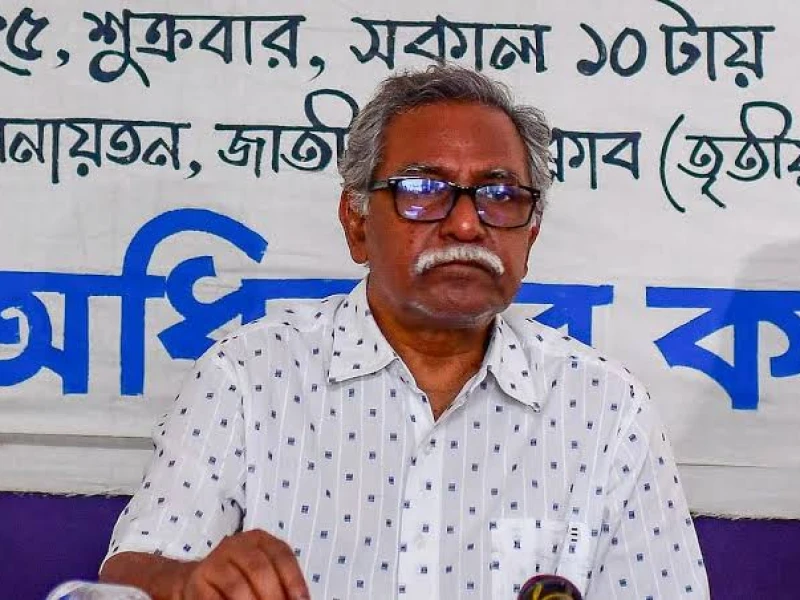Economist and former professor Anu Muhammad has said that while there is “national unity” in occupying and polluting rivers across the country, there is no such unity when it comes to saving them.
Speaking as the chief guest at a discussion at the Jatiya Press Club on Friday, he said questions are often raised about why the Joint Rivers Commission does not function effectively.
In negotiations with international organisations or neighboring countries, shortcomings are always seen from our side. Successive governments have remained dependent on international institutions. Even the Delta Plan on rivers is being prepared by a group from the Netherlands, he observed.
When the current government assumed office, there were expectations of change. They could have immediately formed a river reform commission with experienced people from within the country. Another simple step could have been signing the UN’s 1996 international convention on transboundary rivers, the economist said.
He also noted that many prominent voices in India had opposed the Farakka Barrage and that there are now even calls within India for demolishing dams.
It is therefore crucial to establish communication with Indian civil society, he stressed.
Citing reasons behind the ongoing river crisis, Anu Muhammad identified three major causes: one external — India — and two internal.
Destruction of rivers in the name of development projects and encroachment by powerful groups. Yet the government has taken no effective measures against these, he said.
Inside the country, there is national unity in grabbing and polluting rivers. But when it comes to saving them, there is no unity, he added.


 Prev Post :
Prev Post :
